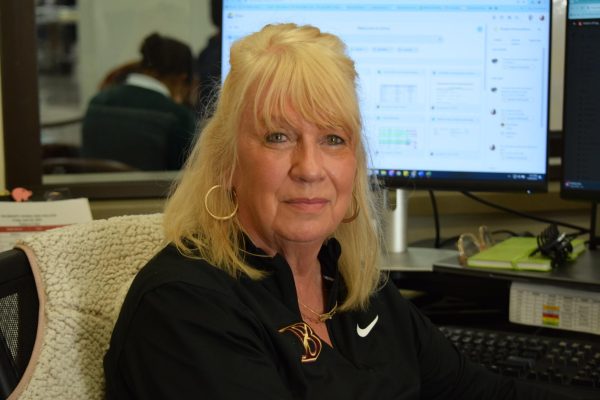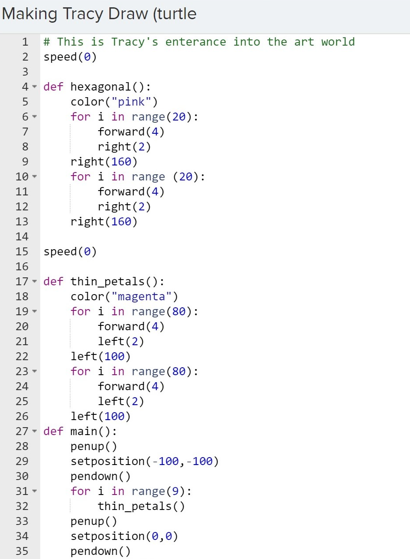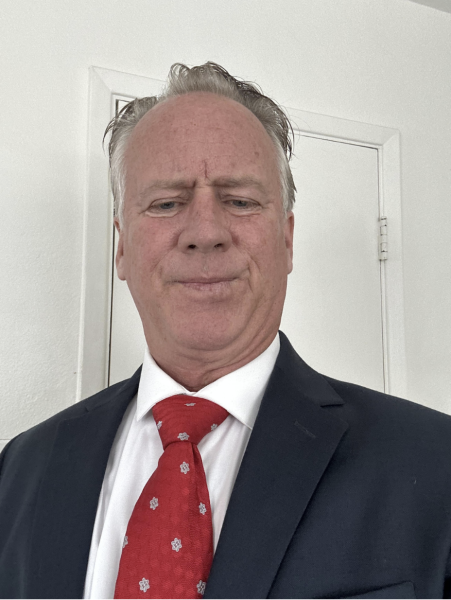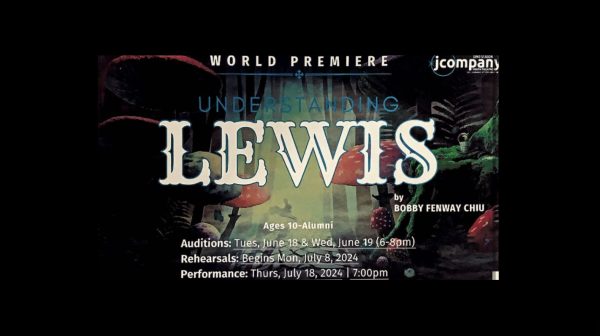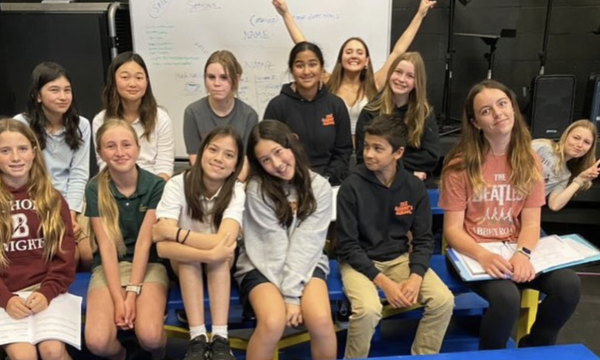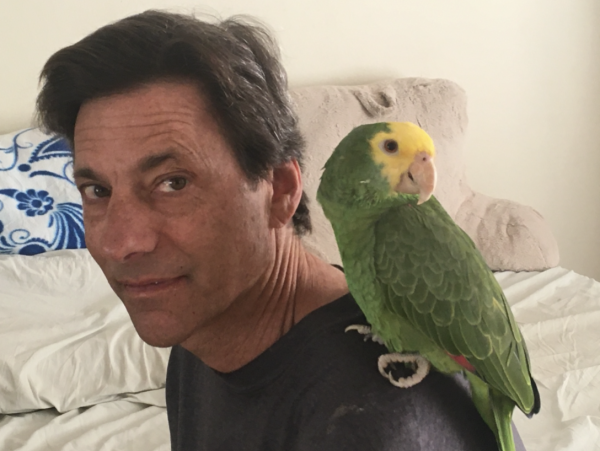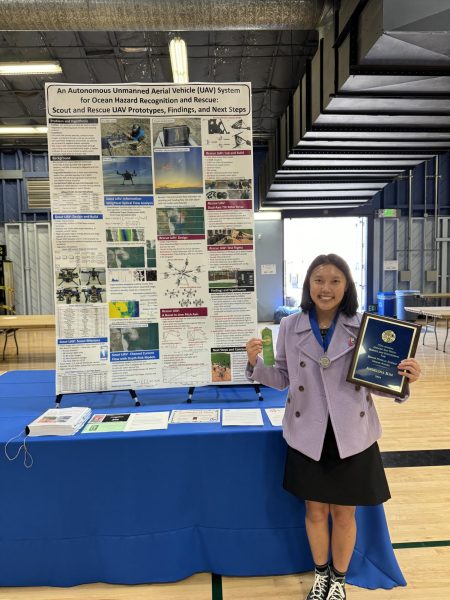Students And Teachers Will Bear The Brunt Of Absence’s Aftermath
Teachers’ absences cause a slew of downstream impacts.
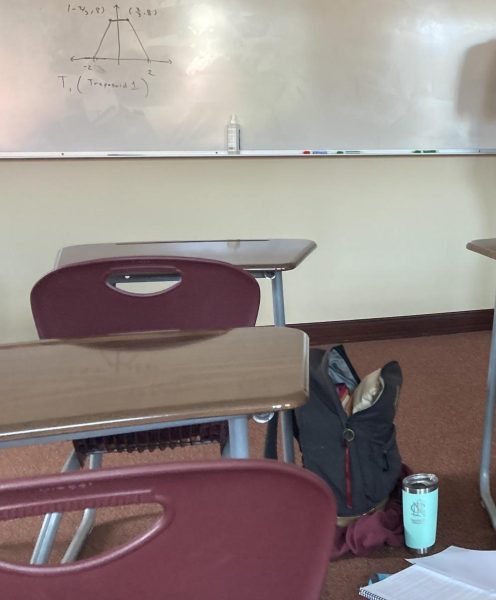
A TV without a TV remote is like a class without a teacher. Being absent is uncontrollable and is part of teachers’ lives. When teachers are absent, they feel frustrated that they cannot physically be in the classroom to help their students. In turn, students flounder.
The severity of the impact depends on the substitute teacher who steps in. Alex Pfister (‘25) explained, “All teachers teach differently and there is inevitably a disconnect between the sub and the real teacher.” Gary Hu (‘25) said his class’s sub was not familiar with the usual teacher’s style, but the sub’s patience and knowledge made up for that disconnect. He said, “the sub managed to compensate for the lack of lectures by using student questions as examples and explaining the entire problem-solving process on the whiteboard.”
Some subs get a bad rap for not maintaining the class structure. James Farrell (‘24) noticed that in his Honors Biology class, it felt like a free period/study hall where they could work on homework.
Additionally, Math teacher Dr. Jay Zhao said that the substitute does not always follow the teaching plan he puts forth. Recently, after an absence, he had to “design a completely new course schedule for that particular section [that the sub skipped], leading to a huge disruption.”
Jackson Weisser (‘26) said that when their Math teacher was absent and the class didn’t know how to solve a problem, they had to skip and move on. This led to difficulty on a section of a quiz that focused directly on the content the class skipped. Ty Thompson (‘25) also had a teacher who was sick for about two weeks. Ty said, “new material is taught every class, and as soon as he got back, we were tested on material that he was not there to teach us and that the sub did not even attempt to teach us.”
Furthermore, sometimes substitute teachers aren’t as knowledgeable about the class subject and material. After Computer Science teacher Mr. Joshua Bloom was absent, his student Jackson reflected, “some substitute teachers don’t know the subject they are supposed to be teaching very well.” AJ Gwathney (‘25) concurred and added, “the substitutes aren’t as knowledgeable as our usual teachers so that is obviously a downside”.
Mr. Ben Heldt, currently the Dean of Faculty and a former science teacher, briefly summarized the selection process for substitute teachers. The Director of Bookstore and Faculty Substitutes Ms. Erin Saldaña manages the pool of substitutes and “when she knows there’s a need for a substitute on a given day, she’ll look at the pool and contact someone who will be a good fit,” said Mr. Heldt. He said that Ms. Saldaña always tries her best to find the perfect match.
To become a substitute teacher at The Bishop’s School, Ms. Saldaña said, “There is a Bachelor’s degree required.” She added, “Many of our subs have degrees beyond their bachelor’s and several have worked here more than ten years.”
Not all Bishop’s students feel that their grades nor learning have been challenged. One student was Gary and he said, “Personally, grades were initially a concern given the sudden learning curve at the beginning of a new semester, but my worries lessened when I realized that all classes and homework we’ve done so far had clear instructions and sufficient details.” He also said that the google docs they used connected previous concepts to new concepts and also furthered the learning of their current topics.
AJ said, “it has made learning harder because everything we learned has been online, we can’t really do interactive lessons.” Furthermore, Thomas Yerbury (‘25) said his teacher’s absence has “negatively affected [his] learning because the situation makes finding a reliable person for help difficult.” Alex added that a regular teacher makes a huge difference, as she is a huge fan of office hours, which allow her to know her teacher and their preferences.
In addition, teacher absences have impacted grades. Dr. Zhao explained that one major factor in lower grades is the problem of students adapting to the teaching styles of subs. He said that another factor was that the subs were not familiar with the course material even if it is elementary. He has not taken sick leave since 2016. He said that being gone, “affected their [student’s] confidence” and also noted a slight dip in grades.
Another Math teacher, Ms. Jennifer Seymour said, “By the end of the semester, some students had higher grades than at Q1 and some students had lower grades than at Q1. But, by the end of the semester, the overall grade distribution matched that of previous years’ classes.” With five subs in five months, Resse Cohen (‘24) said, “This whole situation has negatively affected our learning and our grades in that we have been tested and graded to a higher standard than we have been educated.”
The additional work needed to be put in has caused lots of stress for students. James said that when his teacher was absent for a while, “it was very hard to learn stuff by yourself, and it was a lot of effort you had to put in by yourself, like watch YouTube videos and go into office hours and meet with teachers every free period you have.” Reese went on to say the need to put in extra hours caused extra stress adding salt to a wound as times are already so difficult with Honors Biology.
Moreover, Mr. Heldt said, “It’s always hard to convey my plan to another person so it’s tough to be absent as a teacher because you want to be there for your students.” Dr. Zhao echoed this sentiment and also said that he felt frustrated because he couldn’t be there to help.
By the same token, Math teacher Ms. Seymour said, “It was so hard being out on parental leave for the first eight weeks of school! I was frustrated that I didn’t get to know students at the beginning of the year. I hated not having control over the schedule and content in the way I’m used to.” She later said, “It was really hard coming back to classes that already had formed a community/vibe that I wasn’t a part of.”
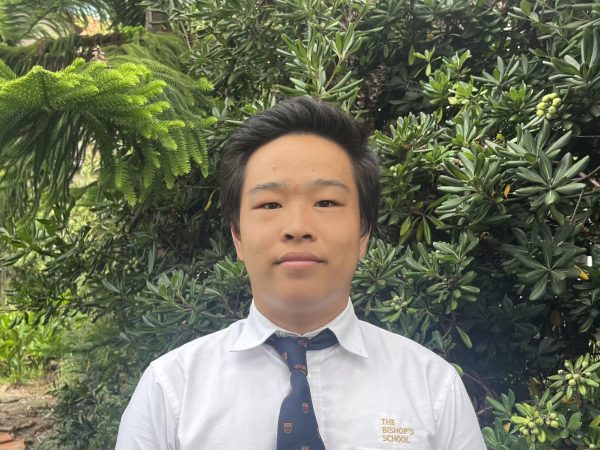
David Lai, the only returning staff writer, is a junior who loves playing soccer. No matter if he sleeps one hour or 10 hours, he always has a full tank...


